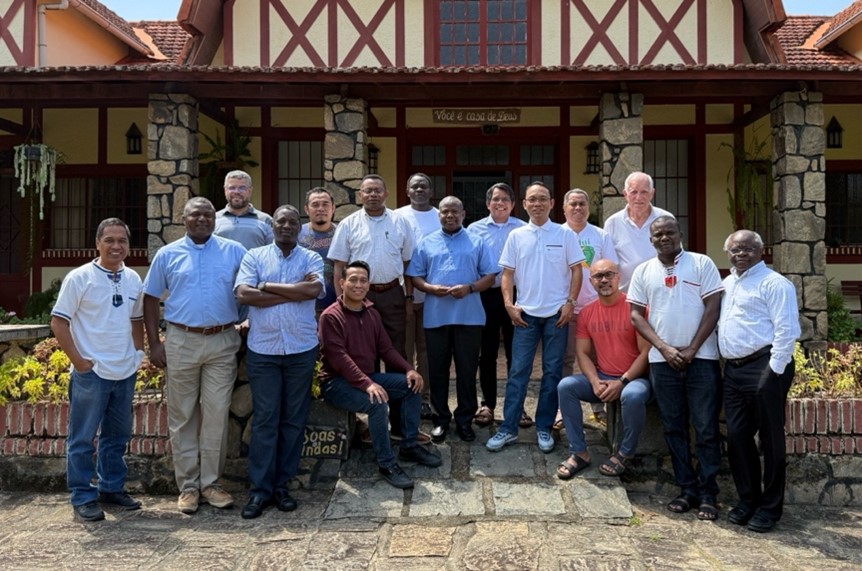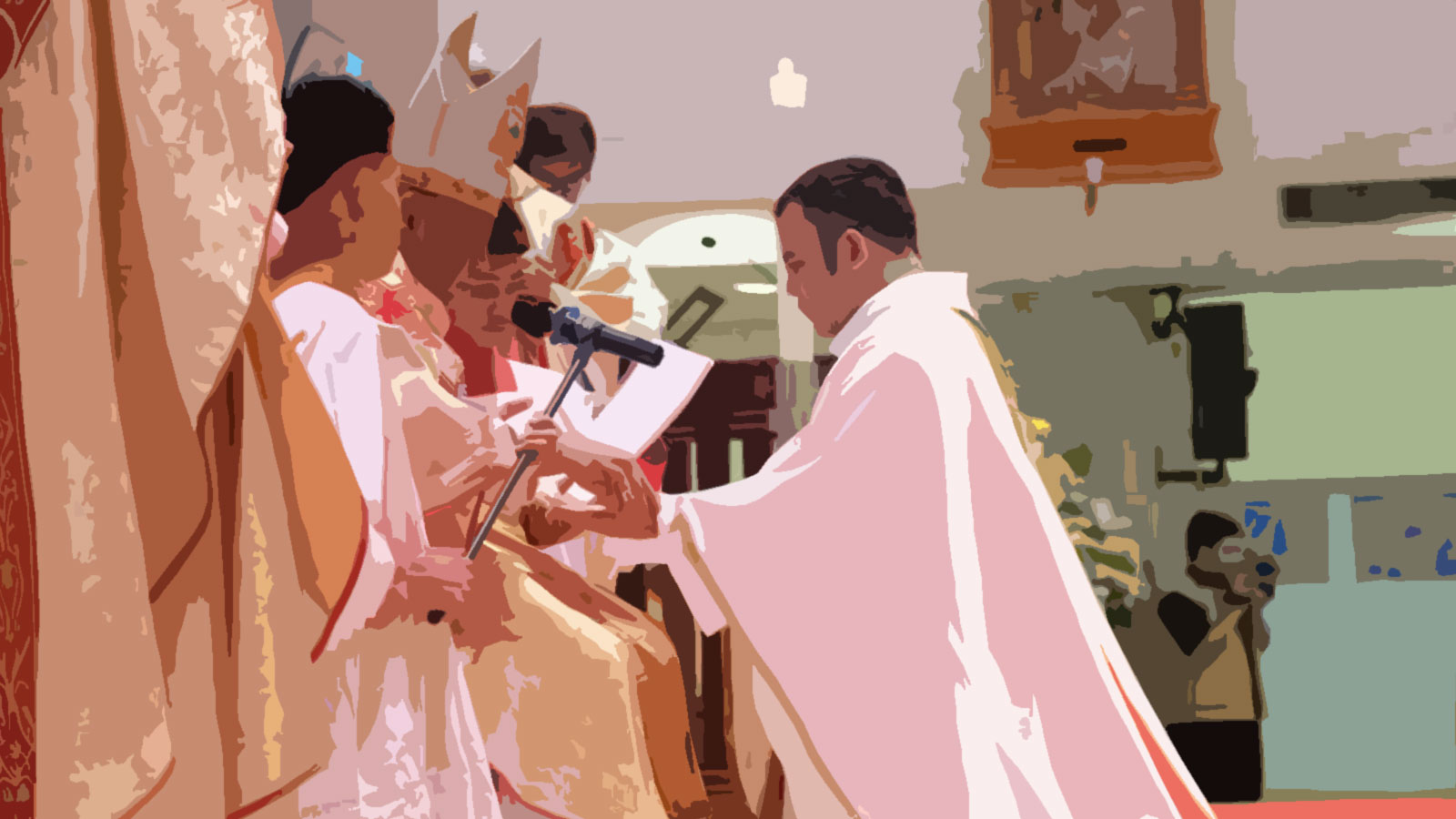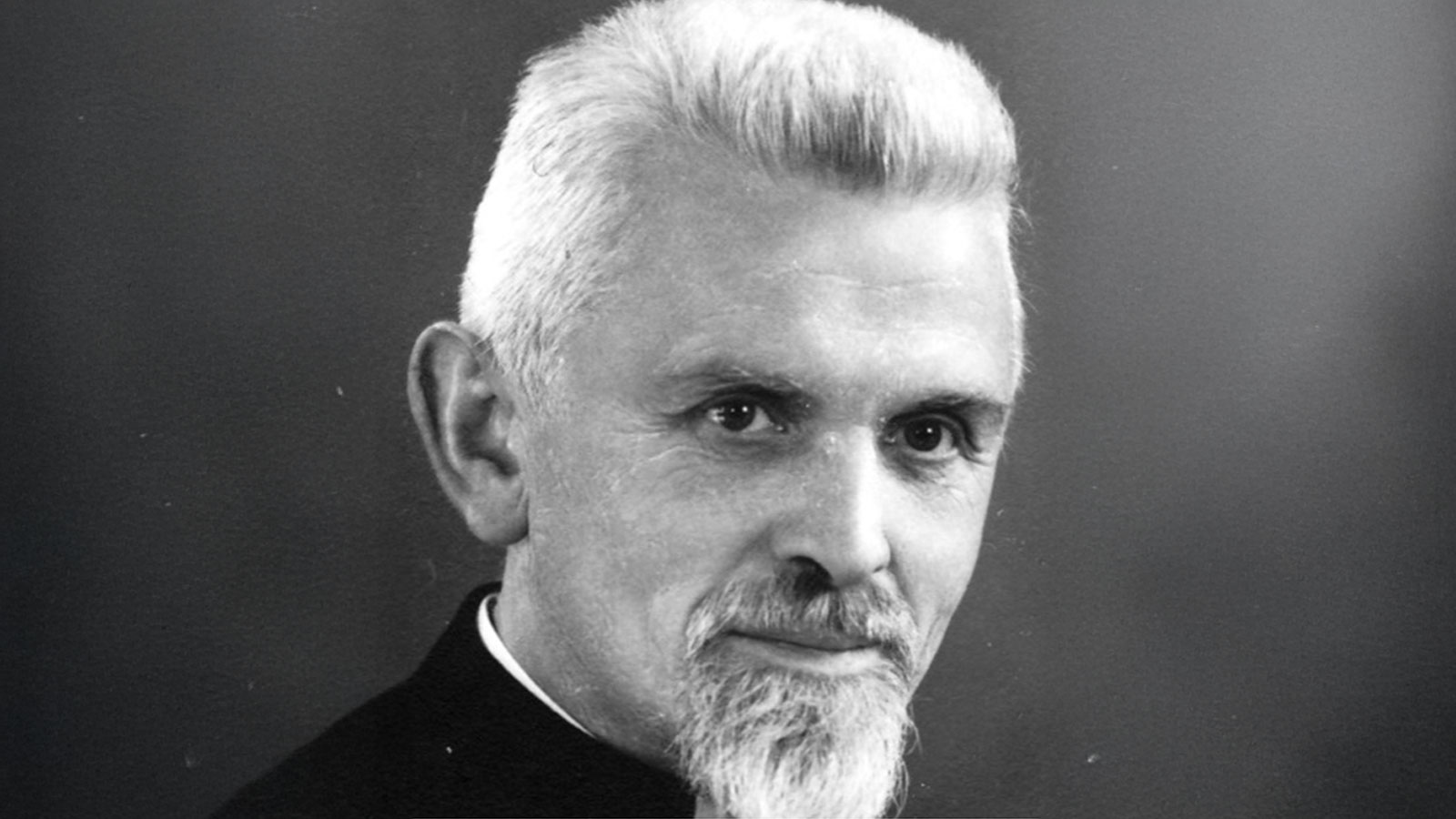 Kevin Saministrado, cicm
Kevin Saministrado, cicm
Missionary in Dom. Republic
Training sessions for recently appointed members of the provincial governments have been a tradition observed for more than two decades. The letter of Father Charles Phukuta, CICM, Superior General of the Congregation, dated July 15, 2024, summoned the new provincial government members of LAC, BNL, and US province on a week-long training session. This training was held in Ermida Retreat Center, Miguel Pereira, Rio de Janeiro on October 7-13, 2024. A tentative agenda was sent out to prepare for this, and a study of CICM documents was recommended.
Upon reading these documents and the written expectations of confreres in LAC Province during the consultative votes of Provincial Government members, I came up with many questions: How can I help the Province and the Congregation? Where Am I with my work as a councilor? Am I doing well in the past 3 months before this training session? What are my boundaries? With all these questions, I arrived in Brazil confused. However, I was so happy to meet some confreres from other provinces who willingly accepted the appointment to be part of their respective Provincial Government. Some of them have enough experience in CICM administrative works, and here I am, a newbie and fresh in this ministry of leadership in our Congregation. I joined this group enthusiastically to learn about my tasks and responsibilities in LAC Province and the Congregation.
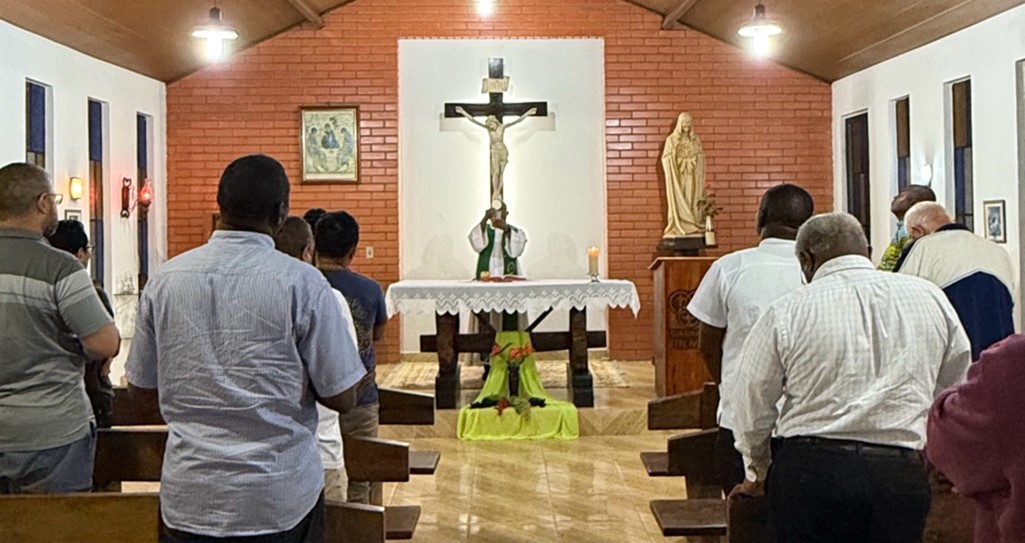
Training session
The Superior General emphasized that the presence of all three Provincial Government members was to animate and help one another fully understand the Congregation's basic principles according to its statutes and constitutions. He highlighted that our CICM constitution has the highest authority in all the documents. This means that we must thoroughly learn it by heart to be guided as members and leaders of the Congregation. A good leader must be equipped with some tools to care for his confreres and confront the different situations of their respective provinces. Leadership roles involved promoting the vision and inspiring confreres to work toward that vision.
According to the general survey of the Elenchus, we have 740 priests, 21 brothers, and 13 deacons, which showed a significant membership and a multicultural character of the Congregation. How can we bring all these concerns to the vision? During the 13th general chapter of 2005, Rome, the capitulants were trained in their workshop with practical tools and techniques such as guidelines for respectful communication, how to deal with our negative experiences, invite others into communication, and analyze what is happening within ourselves. Luckily, it was also echoed in this training, especially the respectful communication guidelines by Eric Law:
R – Take Responsibility for what you say and feel without blaming others
E – Use Empathetic listening
S – Be Sensitive to differences in communication/cultural styles
P – Ponder what you hear and feel before you speak
E – Examine your assumptions and perceptions
C – keep Confidentiality
T – Tolerate ambiguity because we are not here to debate. There are no "winners" or "losers."
These guidelines are crucial to facilitate individual sharing and discussion in our multicultural group. The processes outlined by Eric Law promote genuine dialogue among diverse groups in a series of meetings and discussions. These refined and respectful communication skills should be based on openness, inclusiveness, honesty, and transparency. They also speak of valuing one another and recognizing the unique role of each one of us in this beloved Congregation.
We heard stories of Confreres who were drowning and lost but found their way back and embraced the Congregation. Moreover, there were stories of confreres who were criticized and rejected but became good parish priests and even highly respected missionaries. This reminds me of the Gospel of Mt. 14,22-33, where Peter was drowning, and Jesus extended his hand to save him or the Gospel of Lk. 15,11-32, the parable of the lost son. In situations like these, communication is the best approach that can bring a welcoming environment and create a sense of belongingness and connectedness to recognize our confreres in a way in which their uniqueness is valued and respected in our Congregation.
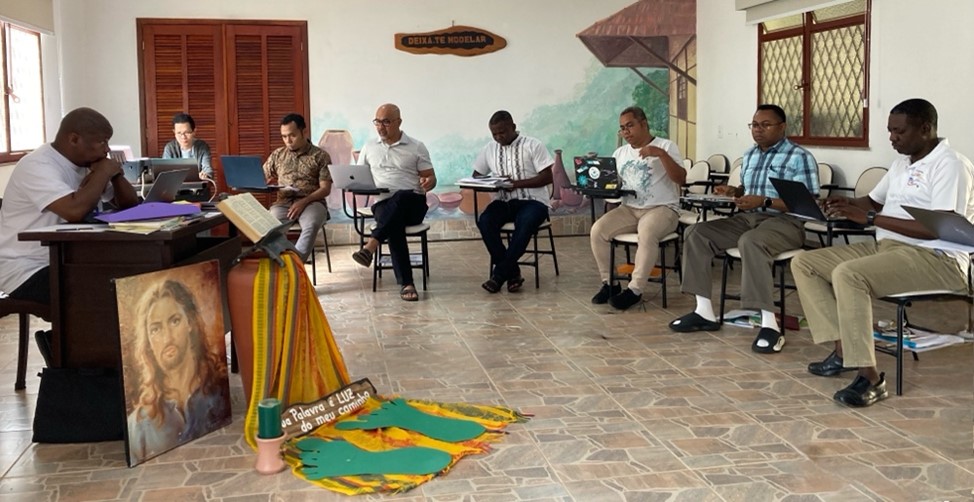
Leadership at the Provincial Level
Provincial government members must be a spiritual animator who leads and guides each confrere to respond to the call of Christ fully; "Go out to the whole world; proclaim the Gospel to all creation." (Mk. 16:15) As Religious missionaries of different races and culture, we live and work together as brothers. "One heart and one soul, we witness to the Father's will that all men and women be brothers and sisters in Christ." (Art. 2, CICM Constitution). Working in the vineyard of the Lord is a corporate commitment. Each of us has a task to contribute to a good harvest.
This means that the Province must have a clear and precise vision. Where are we going? What paraphernalia is needed to cultivate this vineyard? How do we produce a good harvest? A compilation of the expectations of confreres of the Latin American and Caribbean Province for the Office of the Provincial Superior, Vice Provincial, and Councilors is giving us some ideas on how to be more productive. Helpful tips and strategies are being shared on how to journey with confreres or co-workers of this vineyard. Leaders are asked to be open-minded and kind and should promote unity and fraternity among confreres. All Members of the Congregation working for the cost of the kingdom of God must be treated with dignity and respect. A listening ear must be given even to the most special and difficult ones. Recognizing and addressing their spiritual, emotional, and physical needs are essential for their growth. Lastly, leaders should animate and motivate confreres to be faithful to the mission entrusted to the Institute.
The guidelines for multicultural living in CICM recommended something for our leaders, the Provincial Superior, and his Council, which should make it a point that the statutes of the Province provide clear and consistent guidelines for all the members. The lack of such guidelines can be a source of tension and lead to all kinds of misinterpretations, thus detrimental to multicultural living (RI 2005 p.17). In the training sessions, trainees are asked to glance and read the documents. What is being said in the constitution, Vade-mecum, or in the statutes of the Province? It was the question that I always heard during our sharing and discussion. This means that congregational guidelines and other documents reference how to perform a task and create a harmonious province. They also ensure that our missionary life is consistent and runs smoothly toward our mission vision.
With the help of these guidelines, confreres will know what the Province expects from them. Although guidelines, vade-mecum, constitution, and other documents are present to align our life in the Congregation, conflict still arises because of our diverse cultures, individual personalities, communication styles, ideas, and interests. Conflict is expected in a diverse group, even when we share the same charism and vision. However, leaders must immediately deal with it. Take action by having a dialogue with him or them. Understand the real problem and bring a loving solution to that individual or situation.
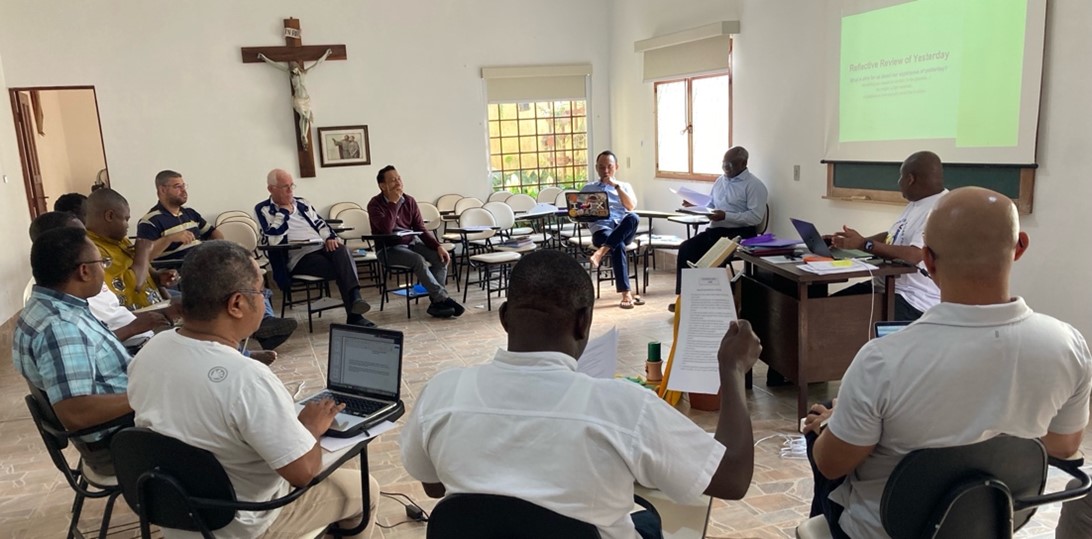
Be rooted in Christ
Our leadership must be more rooted in Christ and imbued with the spirit of the Gospel, and on the other hand, it has to be wholly immersed in the spirit and the missionary and religious experience of the Congregation (Acts of the 15th General Chapter, p. 17). Leadership in Christ is an act of leading and serving others for the interest of the Kingdom of God. Jesus himself was so evident in the Gospel, “Jesus called them together and said, "You know that the rulers of the Gentiles lord it over them, and their high officials exercise authority over them. Not so with you. Instead, whoever wants to become great among you must be your servant, and whoever wants to be first must be your slave– just as the Son of Man did not come to be served, but to serve, and to give his life as a ransom for many.“ (Mt. 20, 25-28)."
Jesus' example of leadership is the way of servanthood. The virtues of service, humility, and love are reflected in his work and his teaching. His leadership is not gauged by gathering the crowd around him, but Jesus led by serving and teaching his followers to do the same. Responding to the needs of his people is essential to him. He looked back and asked: “Who touched my cloak?“ He was well aware of how to prioritize things and showed that he had time for us despite other responsibilities. Jesus knew his mission well. In the last hours before his crucifixion, his disciple betrayed him. Peter denied him three times, and some abandoned him, yet he remained faithful to his commitment to God. He died for the salvation of all humankind.
Our leaders must identify that they are sharing in the mission of Christ, entrusted to the church and to the Institute. Their focus must not be diverted by hardship, skepticism, or enemies. Perseverance is a virtue that leaders need to learn to be effective in guiding and leading people. In CICM, the call to leadership functions in the spirit of service and considers it their most important task that their primary responsibility is to safeguard the fidelity of the Institute to its spirit and mission, to promote unity and communion among confreres, and to encourage their participation in the life of the Institute (Const. Art. 84).
Leaders in our Congregation must be a good animator that can inspire and motivate us in all our commitments that can lead us to fulfill our missionary goal. In ambiguous conditions and a fast-changing world, our leaders provide clear direction and priorities regarding where we are heading with the support of all members. That's why unity and communion among confreres must be promoted so that we can create the conditions to empower and enable them to participate fully in the Institute's life, generating good results. Lastly, leaders must create an environment where confreres feel valued and respected. §
